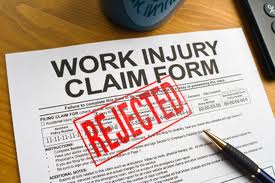In July, 2011 while visiting online questions through a HOT new social media medium (
Quora) a user asked the question “What are the benefits of outsourcing HR and payroll services?” Since this and what the differences are between a Professional Employer Organization (PEO) in combination with human resources, versus a payroll provider are common questions in our consulting practice, we wanted to supply our answer and re-address to our readers our views this week in our weekly tip.

As we stated last week there are many reasons a person or company chooses to outsource anything and depending on a person’s credibility, experience, or industry knowledge they should be able to help you to decide on a provider that actually meets your needs… not theirs! In regards to payroll, and Human Resources (HR) in combination with PEOs there are quite a few things that you need to know about each and/or evaluate in order to make a sound business decision that will ultimately end up helping you save time, energy, and money. David Dandaneau wrote on
Quora “PEOs provide organizations with payroll services, access to workers compensation policies, help in managing their human resources, risk management (i.e. employee manuals and other services), which at times may be difficult for these same organizations to manage on their own. As a result of this more efficient way of managing workplace processes and workplace safety, companies can further reduce administration costs while remaining focused on their core business strategy. PEOs also help companies gain more control over their costs of worker compensation coverage since most of the time workers’ comp rates are based on actual hours worked, so a company is exactly even every week and the worry of tax penalty goes away because the PEO pays all the state and federal taxes under their FEIN.”
According to the U.S. Department of Labor, almost all PEOs help small and large organizations alike with their hiring practices (HR) by attracting and retaining good employees, while reducing their employee turnover and unemployment compensation claims, which is extremely critical in today’s working environment. Because most employee leasing companies also represent a number of different employers these companies regardless of location, usually have access to a larger pool of workers. In turn, having access to a larger pool of workers can often help lower the costs associated with certain employee benefits such as health, dental, or supplemental insurance, and even 401(k) retirement plans, which many companies cannot afford individually but now can because of the buying power of an employee leasing company.
On the other hand, if you are looking for reasons why you would outsource your payroll much like in a PEO arrangement there are several reasons. The first is you avoid paying an IRS penalties since most payroll companies provide a “tax guarantee” that ensures customers pay no penalties and according to a recent IRS report about 40% of all small businesses pay average yearly penalties of $800 or more per year because they filed late and/or supplied incorrect filing information. Secondly, and just like in a PEO arrangement the direct cost of processing your payroll goes away. In another recent study conducted by the University of Texas-Arlington they showed this expense can be as large as 8.5% of the total yearly gross payroll, which obviously frees up your time and money to invest in other money generating activities, while avoiding any unnecessary headaches associated with keeping up with technological advances. Thirdly, you are able to offer direct deposit, which most of the time can be extremely difficult if you do not use a payroll company. Finally, you are able to leverage the experience of the outside payroll processor as many organizations that employee payroll processors make sure they are Certified Payroll Processors (CPP), which means you can take advantage of a benefit (they keep abreast of all changing regulations, withholding rates, and government forms) that was once only available to large organizations. All these benefits at a fraction of the cost it would cost you to do it yourself clearly outweigh the headaches of having to worry if or in many cases… when things do go wrong.

The most important thing to remember between a PEO (i.e. also providers of HR services) and a Payroll Processor is in a PEO arrangement all tax and workers comp claims are filed under the PEO’s Federal ID Number (FEIN) versus a Payroll Processor who files tax information or workers compensation claims under your company FEIN.”
We hope that supplying our readers with this information will help you, your friends, and/or referral partners make sound personal and/or business decisions since we are arming you with important information to do so. As we continue to serve our clients on a variety of consulting segments, we will continue to provide more information on these subjects, along with our other consulting segments. In the meantime, if you would like more information on Employee Leasing Companies (also their HR programs) or Payroll Processors, you can respond here, to us through all our social media outlets, or call us personally at 813-474-2705 to discuss how you continue to remain focused on growing your personal or businesses bottom line, so you have a competitive advantage over your friends and competition. Otherwise, keep smiling, and thanks for taking the time to stop by and read our post.
Hyper Smash
David Dandaneau is a Consultant at [SevenTimesSeven]. He specializes in helping business owners “manage their business and not their processes!” For more connect with him via Twitter @ddandaneau or any of the other social platforms you may find him on.






